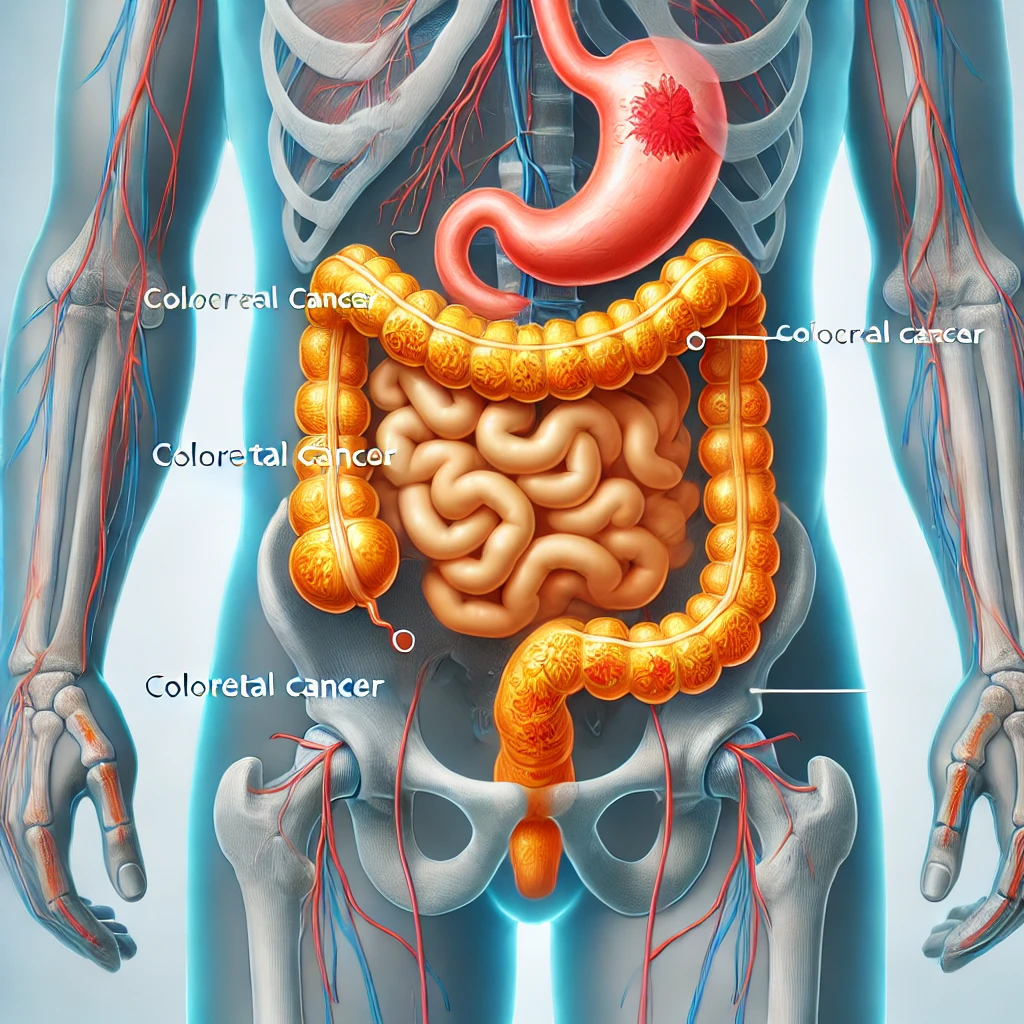Colorectal Cancer
Colorectal cancer is a type of cancer that starts in the colon or rectum. It typically begins as a growth called a polyp, which can develop into cancer over time. Regular screening is important because it can help detect polyps early, before they turn into cancer. Symptoms may include changes in bowel habits, abdominal discomfort, and unexplained weight loss. Treatment options often involve a combination of surgery, chemotherapy, and radiation therapy, depending on the stage of the cancer. Early diagnosis greatly improves the chances of successful treatment and survival.

Name | Description |
|---|---|
Adenocarcinoma | Most common type of colorectal cancer originating in the glandular cells lining the colon and rectum. |
Adenosquamous Carcinoma | Contains both adenocarcinoma and squamous cell carcinoma components. |
Basaloid Carcinoma | Rare type of cancer with basaloid features. |
Lymphoma | A rare type of colorectal cancer originating from lymphoid tissue. |
Medullary Carcinoma | Rare subtype of colorectal cancer with medullary growth pattern. |
Mucinous Adenocarcinoma | Subtype of adenocarcinoma characterized by abundant mucin. |
Neuroendocrine Tumors | Neuroendocrine tumors ranging from well-differentiated to poorly differentiated. |
Signet Ring Cell Carcinoma | Rare and aggressive form of adenocarcinoma with cells that resemble signet rings. |
Small Cell Carcinoma | Rare type of colorectal cancer resembling small cell lung cancer. |
Squamous Cell Carcinoma | Cancer that arises from squamous cells in the colorectal region. |